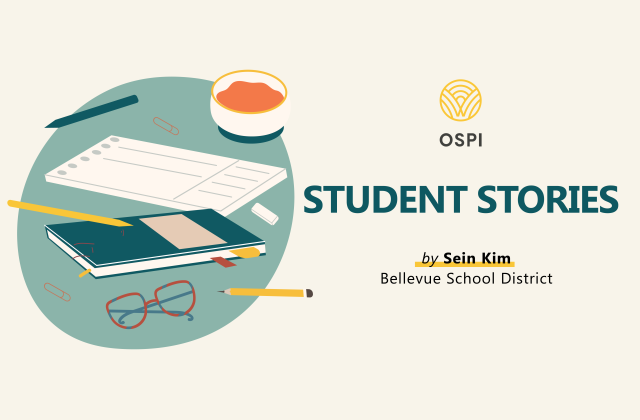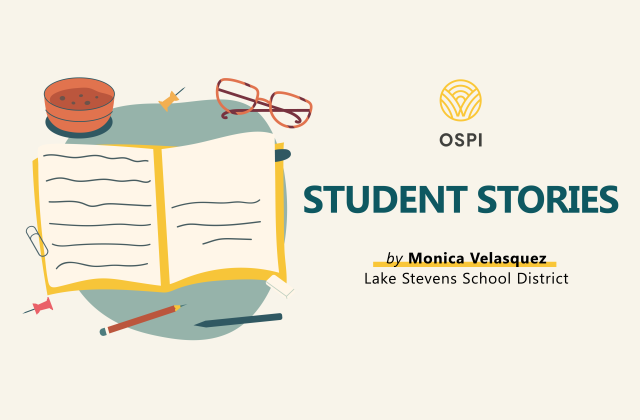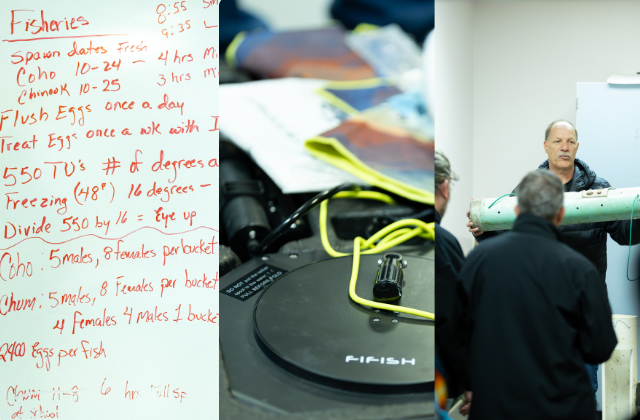Media Contact
Katy Payne she/her
360-764-0201
Editor’s Note: OSPI aims to elevate the authentic experiences of the students in Washington’s K–12 public schools. This story was written by a Washington state high school student participating in OSPI’s Student Stories Program. The author’s opinions, beliefs, and viewpoints do not necessarily reflect those of OSPI, and publication of this story does not constitute OSPI’s approval or endorsement of its contents. With questions, please contact OSPI’s Communications team at commteam@k12.wa.us.
Choosing what I want to do in the future is difficult, even if I have skill-based interests. So many options are thrown at me that if I pick one, I may be missing out on another. As I’ve grown older, I’ve told myself the phrase “Be realistic” more and more frequently. If there was anything I wanted to do, I had to slap the label on most of it.
“I want to be a book writer.”
“Be realistic; that field pays little, and it’s hard to be successful in. Focus on something you can do”
I want to be a nutritionist, I want to be a teacher, I want to be a lawyer, a businesswoman, an architect, a salesman. Yet with each and every one of these, I tell myself that I should be realistic and go with something easy and non-competitive. Something I couldn’t fail in so that I wouldn’t have any regrets so that I wouldn’t let myself down.
I remember a quote from a historical figure when I had limiting thoughts like these. To give some context, it was a time of war. The Battle of Yarmouk pitted the Muslims against the Romans. The Romans were three times larger in number and technologically more advanced. The army was anxious and talked about how high in number the Romans were and how they didn’t think they could beat them.
The army general, Khalid Ibn Al Walid said: “How few the Romans are! I wish they doubled their numbers for us." It was ridiculous what he was saying. Considering the odds, they would’ve been crushed. There was no way they could have a chance. It was rational and perfectly logical to assume that the best course of action was to retreat or run away. Yet Khalid Ibn Al Walid yearned for an even more impossible situation. He had a mindset. He had the mindset to win. Losing was not an option or a possible outcome for him.
In the end, they defeated the Romans with the little manpower and sheer will they had. After I heard this quote, I began to realize that “being realistic” is often an overused excuse for mediocrity. The reality of the course of my life can be literally whatever I choose for it to be, depending on what I decide to do. And that applies to everyone. School is a pathway for me to decide what I want to do and how I should do it. Clubs, extracurriculars, sports, service hours, scholarships, everything is provided as steps for success and I have the power to choose if I want to make the most of them.
If I’m speaking on a personal level, I’ve used the tools I’ve been given to strive for success and to keep the question away from “Can I do this?” to “How will I do this if I decide to do it?". Joining clubs to learn more about what I want to do in the future, asking people I know who work in certain fields what they did, and deciding that no dream should be undermined, no matter how far it may seem. And though blind optimism can be just as harmful as pessimism, hoping that all my dreams can come true with no hard work is equally as harmful. This story can apply to anyone no matter what stage in life they are in, and that gives me the confidence to put my foot forward is that in the face of impossible odds, I have the power to choose what my future holds.
Source: Rumiyah page 29
About the Author
Amira Saadi (she/her) is a sophomore in high school in the Edmonds School District, and participates in DECA and the Technology Student Association. Born and raised in Washington state, she is a passionate and energetic artist who appreciates observing and creating. She is also interested in debate and philosophy, and enjoys sketching and writing short novels in her free time.









